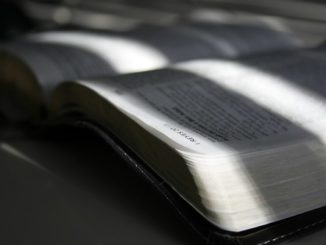Escape to the Shining City on the Hill
7 For scarcely for a righteous man will one die: yet peradventure for a good man some would even dare to die.
8 But God commendeth his love toward us, in that, while we were yet sinners, Christ died for us.
Romans 5:7-8 (KJV)
In Preparation...
- Review the story of Sodom and Gamorrah and their destruction beginning with Genesis 18:16 to 19:29
- Write in your journal your thoughts on the why God decided to save Lot and his family who would go (the two sons-in-law ignored Lot’s pleas and died in the city).
Righteous Strong's 6662-Saddiq
Hebrew Strong’s Number: 6662
Hebrew Word: צַדִּיק
Transliteration: ṣaddîq
Phonetic Pronunciation:
Root: from <H6663>
Cross Reference: TWOT – 1879c
Part of Speech: adj
Vine’s Words: Righteous (To Be)
Usage Notes:
English Words used in KJV:
righteous 162
just 42
righteous man 1
lawful 1
[Total Count: 206]
from <H6663> (tsadaq); just :- just, lawful, righteous (man).
James Strong, Strong’s Talking Greek & Hebrew Dictionary, (Austin, TX: WORDsearch Corp., 2007), WORDsearch CROSS e-book, Under: “6662”.
We all know what happens in our "city"
There are a large number of devotions about the sacrifice of Jesus, what that sacrifice means, and why He did it. They are usually about salvation for all the world even though we don’t deserve it. This is sort of another one.
In the story about Sodom and Gomorrah we see two cities in the depths of depravity through all manner of sexual and moral impurities which the people of those cities accepted, tolerated, and allowed. Everyone knew what happened in those two cities. No one in those cities was innocent of what went on inside their walls except Lot.
In Genesis 18 we see Abraham plead with God to not destroy the city. Abraham appeals to God asking what if there are fifty righteous in all the city? Must they die too? God gives in to this request but then Abraham goes on to ask if they miss just five will the 45 have to die because they couldn’t find the last five? God agrees. What about thirty? What about ten? God allows all this discussion without complaint and agrees each time. I find both Abraham’s courage to “argue” with God over His decision just as amazing as God’s patience for this man who disputes with Him over a decision He has made.
The angels who travel to Sodom don’t find ten righteous people. The transliteration for the Hebrew word for Righteous is ṣaddîq and it means lawful. Those angels do not find ten people obeying the law (God’s law, not Mans), but they are met by Lot who is a righteous man doing the best he can to follow God’s ways. It is for his sake, the sake of his wife, and their two daughters that the angels save them. Between both Abraham and Lot,
Definition Transliteration
trans·lit·er·ate | \ tran(t)s-ˈli-tə-ˌrāt , tranz- \
transliterated; transliterating
Definition of transliterate
: to represent or spell in the characters of another alphabet
transliteration \ (ˌ)tran(t)s-ˌli-tə-ˈrā-shən , (ˌ)tranz- \ noun
Examples of transliterate in a Sentence
The Russian letter Я is usually transliterated in English as ya or ia.
we see a merciful God willing to allow evildoers to live for the sake of the righteous (as seen in Abraham’s discussion in Genesis 18). This is the same sort of merciful God we see in the scripture today.
13 “You are the salt of the earth; but if the salt has become tasteless, how can it be made salty again? It is no longer good for anything, except to be thrown out and trampled under foot by men.
14 “You are the light of the world. A city set on a hill cannot be hidden;
15 nor does anyone light a lamp and put it under a basket, but on the lampstand, and it gives light to all who are in the house.
16 “Let your light shine before men in such a way that they may see your good works, and glorify your Father who is in heaven.
Matthew 5:13-16 (NASB)
God destroyed the evil of the earth once in a flood. This time, He sent an escape plan for some of us, but we have to access that plan. That plan has a name, Jesus Christ. God sent His Son to be the escape plan from evil for all Mankind. This way, those who are destroyed made that decision on their own. While the rest of us are equally caught up in sin, we are like Lot trying to escape the inevitable destruction. Also like Lot, we cannot escape this destruction on our own, we need help. Fortunately for us, God sent His Son to guide us out of the city that is destined to be destroyed, and not only that but everyone we can lead out of that city will be saved also. Lot escaped to Zoar, a little town in the plains nearby that the angels agreed to spare the coming destruction. We each have our own “little town” or “Zoar” in our local church. This is one reason why they are to be “shining cities on a hill”, to guide our escape of that evil city.
God sent His Son to die for the entire world. He set this in motion that we might escape to the plains, to that shining city on the hill. The question becomes when we get there do we help polish the city up by leaving our baggage behind or do we tarnish it with what we brought with us? The choice is ours to make, each of us individually.
Evil Strongs 4190-Poneros
Greek Strong’s Number: 4190
Greek Word: πονηρός
Transliteration: ponēros
Phonetic Pronunciation:
Root: from a derivative of <G4192>
Cross Reference: TDNT – 6:546,912
Part of Speech: adj
Vine’s Words: Bad, Evil, Evil-doer, Grievous, Grievously, Harm, Vile, Wicked
Usage Notes:
English Words used in KJV:
evil 51
wicked 10
wicked one 6
evil things 2
miscellaneous translations 7
[Total Count: 76]
from a derivative of <G4192> (ponos); hurtful, i.e. evil (properly in effect or influence, and thus differing from <G2556> (kakos), which refers rather to essential character, as well as from <G4550> (sapros), which indicates degeneracy from original virtue); figurative calamitous; also (passive) ill, i.e. diseased; but especially (morally) culpable, i.e. derelict, vicious, facinorous; neuter (singular) mischief, malice, or (plural) guilt; masculine (singular) the devil, or (plural) sinners :- bad, evil, grievous, harm, lewd, malicious, wicked (-ness). See also <G4191> (poneroteros).
James Strong, Strong’s Talking Greek & Hebrew Dictionary, (Austin, TX: WORDsearch Corp., 2007), WORDsearch CROSS e-book, Under: “4190”.
16 “For God so loved the world, that He gave His only begotten Son, that whoever believes in Him shall not perish, but have eternal life.
17 “For God did not send the Son into the world to judge the world, but that the world might be saved through Him.
18 “He who believes in Him is not judged; he who does not believe has been judged already, because he has not believed in the name of the only begotten Son of God.
19 “This is the judgment, that the Light has come into the world, and men loved the darkness rather than the Light, for their deeds were evil.
20 “For everyone who does evil hates the Light, and does not come to the Light for fear that his deeds will be exposed.
21 “But he who practices the truth comes to the Light, so that his deeds may be manifested as having been wrought in God.”
John 3:16-21 (NASB
Digging Deeper
- Contemplate the things in your life that others might consider “baggage” that might “tarnish” the reflection of the city.
- Write one piece of “baggage” in your journal and research what God thinks about that subject in the Bible.


